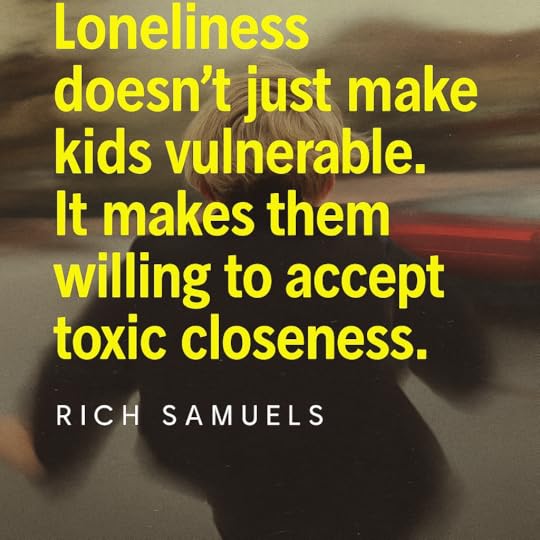🤝 The "Power" of One Good Friend
In Getting What I Deserve, Charlie doesn’t find himself bullied in the classic way.
He isn’t shoved in hallways or stuffed into lockers.
He’s emotionally cornered—by someone who tells him they’re his friend.
That “friend” is Mark.
And while Mark led much of the bullying Charlie endured during the school year, he flips the script the moment summer vacation begins.
He reaches out. He’s friendly. He wants to hang out. And Charlie—desperate for a connection—says yes.

The relationship starts on shaky ground: Mark’s invitation comes just days after months of public humiliation.
But Charlie, craving any social attention, lets himself believe this might be real.
Maybe Mark has changed.
Maybe he finally sees Charlie differently.
What unfolds isn’t healing. It’s emotional manipulation.
Mark uses the summer to:
Control Charlie’s availability and emotional stateGaslight him when things go too farBlur the lines between joking and crueltySet the stage for an even more painful fallAnd Charlie, hopeful and isolated, keeps accepting it.
🧠 What This Reveals About Friendship and Mental HealthCharlie’s story is a cautionary one—not just about bullying, but about how dangerous emotional manipulation can be when disguised as peer support.
In today’s culture, where friendship is seen as the antidote to loneliness, we often forget to ask:
What kind of friendship?
Because:
Not all friends make you feel safeNot all attention is healthyAnd not all forgiveness is earnedCharlie doesn’t lack strength. He lacks validation—the kind that tells him he deserves better. That's why he maintains a friendship with someone who's hurt him.
⚠️ Why Peer Support for Youth Is So ComplicatedKids like Charlie want so badly to belong that they’ll overlook history, ignore red flags, and rewrite stories just to feel wanted.
This makes the concept of peer support both powerful and dangerous.
The presence of a peer isn’t always positive.
Sometimes, it delays recognition of harm.
Sometimes, it deepens the trauma.
That’s why friendship and mental health can’t be separated.
A single compassionate friend can be a turning point.
A single manipulative one can be a spiral.
Getting What I Deserve doesn’t offer a neat, triumphant narrative.
Charlie doesn’t immediately reclaim his voice.
He doesn’t “defeat” the bully.
Life is like that.
Instead, it shows:
How quiet manipulation operatesHow loneliness lowers the bar for trustHow trauma can hide behind a smileFree learning tools available at RichPerceptions.com:
🌱 The Real MessageThe “power of one good friend” is real.
But so is the danger of one fake one.
Let’s teach kids what real friendship feels like.
Let’s remind them they don’t have to settle for survival.
And let’s give them the words to name what hurts—even when it’s wrapped in kindness.
Because connection shouldn’t come at the cost of your voice.



